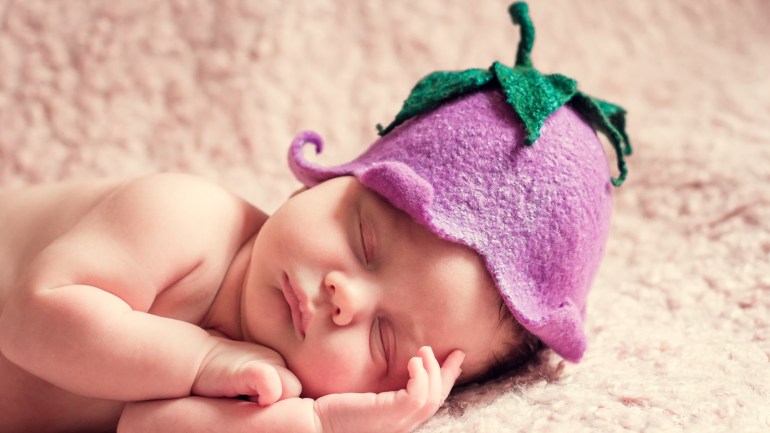After years of warnings from pediatric experts, "Sleep Safe for Babies" has become a federal law in the United States, banning the manufacture and sale of two of the most popular accessories originally designed to ensure a peaceful and safe sleep for infants: "rocking chair and bed corner pillows".
The law will enter into force on June 23.
safe sleep law
In mid-May, US President Joe Biden signed a safe sleep law for children, which was circulated in the Senate last year, but was stopped.
The law, which will enter into force, soon, prohibits the manufacture, sale or distribution of two children's sleep products, which are the "reclining infant rocking chair" and "bumper pillows", according to the US Congress website.
The law has been well received by child safety advocates in the United States, especially after they have called for years to ban those products that have been linked to nearly 200 infant deaths.
Theresa Murray, director of the Consumer Control Office of the US Education Fund (PIRG), issued a statement saying, "The risks to children have been clear for years, and it is unfortunate that this law takes time to come into effect."
In the statement, she called on parents, according to WebMD, to quickly identify the dangers of these products and get them out of their homes now.
Why was the law passed now?
For years, the American Academy of Pediatrics (AAP) recommended that babies sleep flat on their backs and without padded crib bedding, but baby manufacturers and stores have stuck to making and selling baby bouncers and bumper pillows.
For years, medical recommendations have been educating consumers about the dangers of these products, while commercial advertising plays on the feelings of parents through the attractive designs and bright colors of these products.
Some attribute the issuance of the law to the fact that it came after the recent increase in deaths related to producers.
According to the American Broadcasting Corporation (NPR), these two products have been linked to nearly 200 deaths among children, with the US Consumer Product Safety Commission recording 83 deaths related to rocking inclination beds in addition to 97 deaths due to bumper pillows.
Why are rocking beds and pneumatic fenders unsafe?
An infant's position in a rocking tilt bed causes the child to lean forward and tilt his chin toward his chest, blocking his airway.
An older child may roll over and be unable to correct his position because of the incline.
In either case, this could lead to suffocation and sudden death of the child, according to the Sleepfoundation organization.
As for crib bumpers or bumper pads, they are meant to protect children from contact with the harsh sides of the crib.
However, it may cause suffocation if the child's face gets too close to a bumper or pillow that is too soft and cannot move his face.
And sometimes, because of it, the infant re-breaths the carbon dioxide produced by exhalation, and thus increases its susceptibility to sudden death.
These bumpers come ready in the crib, where they line its inner sides, and some mothers place quilts and light pillows around the baby while he sleeps to prevent him from falling or adjust his sleep, all of which can cause sudden death of the infant.
Sudden infant death
Sudden Infant Death Syndrome is defined as the sudden, unexpected death without a clear medical cause of an infant less than one year old.
This condition is called "cradle death" because babies often die in their beds, according to the Mayoclinic.
Researchers have tried to find possible causes for this syndrome, in addition to physical causes such as brain defects, low birth weight and respiratory infection, and they have concluded that there are elements present in the child’s bed beside his sleeping position that may lead to the child’s exposure to danger during sleep and may cause death, including:
Sleeping on the stomach or side
Babies who are placed in these sleeping positions may have more difficulty breathing than those placed on their back.
Sleeping on a soft surface
Lying on a fluffy quilt, soft mattress or reclining bed, or using crib bumpers can block an infant's airway.
bed sharing
The risk of sudden infant death increases if the infant sleeps in the same bed with parents, siblings, or pets.
High temperature
Being too warm while sleeping can increase a baby's risk of sudden death syndrome.
The risk of sudden infant death increases if the infant sleeps in the same bed with the parents (Pixabe)
Safe sleeping area for children
In the United States, about 3,400 babies die each year, unexplained, from SIDS.
This prompted the Centers for Disease Control and Prevention (CDC) to issue recommendations for mothers to take steps to help create a safe sleeping area for children, including:
Put your baby on his back at all times to sleep. Babies who sleep on their backs are less likely to die from sudden infant death syndrome than babies who sleep on their sides or on their stomachs.
Use a firm, flat sleeping surface, such as a mattress in a crib and covered only with a fitted sheet. A firm sleeping surface helps reduce the risk of sudden death, while soft surfaces increase the risk.
Bring a special bed for your child and do not let him sleep on your bed.
It's best to keep your baby's crib in the same room you sleep in until he's at least 6 months old.
Accidental suffocation can occur when a child sleeps in an adult bed or other unsafe sleeping surface.
Keep soft bedding such as blankets, pillows and soft toys away from your baby's sleeping area.
During cold weather, try to increase his clothing and not add layers of covers, as it may cause him to overheat and may suffocate him.

